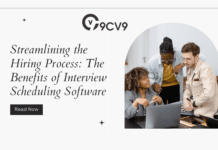Key Takeaways
- Gain a competitive edge in your job search by following a step-by-step guide to research the job market effectively.
- Understand the importance of defining your goals, analyzing job descriptions, and staying updated on industry trends to tailor your job search strategy.
- Utilize online job platforms, networking, and informational interviews to uncover hidden job opportunities and position yourself as a strong candidate.
Are you on the hunt for a new job?
Feeling overwhelmed by the seemingly endless sea of opportunities and unsure of where to begin?
Look no further.
Researching the job market is a crucial first step that can significantly enhance your chances of finding the perfect job that aligns with your skills, interests, and aspirations.
In this comprehensive and step-by-step guide, we will walk you through the process of researching the job market.
By following these tried-and-tested methods, you will gain valuable insights into industry trends, job demand, salary ranges, and much more.
Armed with this knowledge, you’ll be able to make informed decisions and tailor your job search strategy for success.
Before diving into job market research, it’s essential to start by assessing your own goals, skills, and preferences.
Understanding your strengths, interests, and values will help you narrow down your job search and focus on roles that truly resonate with you.
We’ll guide you through a series of exercises and self-reflection techniques to help you define your career goals and aspirations accurately.
Get a top CV and Resume using the world’s free and modern CV Builder, UrbanCV.
Once you have a clear understanding of your goals, it’s time to explore the job market landscape.
We’ll provide you with valuable tips and resources to gather relevant information about industry trends, growth opportunities, and job sectors in demand.
You’ll learn how to analyze salary ranges, compensation packages, geographical considerations, and market dynamics to make informed decisions about where to focus your job search efforts.
The internet is a treasure trove of job opportunities, but it can also be overwhelming.
We’ll navigate you through the vast array of online job platforms, offering insights into popular websites and strategies for optimizing your job search.
Discover how to use advanced search options, keyword filters, and job alerts effectively.
Additionally, we’ll explore professional networking platforms and highlight their significance in gaining valuable job market insights.
Networking is a powerful tool that can unlock hidden job opportunities and provide valuable industry insights.
We’ll guide you through building and expanding your professional network, leveraging existing connections, and reaching out to industry professionals for informational interviews.
Learn how to conduct effective informational interviews that will help you gain firsthand knowledge about the job market, industry trends, and potential career paths.
Job descriptions often contain valuable information about the skills, qualifications, and expectations employers seek in candidates.
We’ll teach you how to analyze job descriptions effectively, decode the key elements, and identify the common requirements across different roles.
Discover strategies for aligning your resume, cover letter, and interview preparation with the specific job requirements to stand out as a qualified candidate.
The job market is constantly evolving, influenced by technological advancements, economic changes, and industry shifts.
We’ll show you how to stay ahead of the curve by subscribing to industry newsletters, following thought leaders on social media, and attending conferences and webinars.
By staying informed about industry news and trends, you’ll gain a competitive edge and be better equipped to adapt your job search strategy accordingly.
As you progress through your job search journey, it’s crucial to evaluate and refine your strategy based on the insights gained from your research.
We’ll guide you through reflecting on your findings, reassessing your goals, and seeking feedback from mentors or career coaches.
Learn how to adapt your job search approach to changing market conditions, ensuring you’re always maximizing your chances of landing the ideal job.
By the end of this step-by-step guide, you’ll have developed a comprehensive understanding of how to research the job market effectively.
Armed with this knowledge, you’ll be able to navigate the job market landscape with confidence, make informed decisions, and tailor your job search strategy to secure your dream job.
Get ready to embark on a journey of self-discovery and exploration. Let’s dive into the world of job market research and set yourself up for career success.
Before we venture further into this article, we like to share who we are and what we do.
About 9cv9
9cv9 is a business tech startup based in Singapore and Asia, with a strong presence all over the world.
With over six years of startup and business experience, and being highly involved in connecting with thousands of companies and startups, the 9cv9 team has listed some important learning points in this overview of the guide on how to Research the Job Market with A Step-by-Step Guide.
If you are looking for a job or an internship, click over to use the 9cv9 Job Portal to find your next top job and internship now.
Research the Job Market: A Step-by-Step Guide
- Defining Your Goals and Preferences
- Gathering Job Market Information
- Utilizing Online Job Platforms and Resources
- Networking and Informational Interviews
- Analyzing Job Descriptions and Requirements
- Staying Updated on Industry News and Trends
- Evaluating and Refining Your Job Search Strategy
1. Defining Your Goals and Preferences

Before diving into the vast job market, it’s crucial to start by understanding your own goals, skills, and preferences.
Taking the time to define your career aspirations and align them with your interests and values will significantly enhance your job search process.
Here’s a comprehensive breakdown of how you can effectively define your goals and preferences:
Assessing your Skills, Interests, and Values
Begin by evaluating your unique combination of skills, talents, and expertise.
Consider both hard skills (technical abilities) and soft skills (communication, problem-solving, etc.) that you possess.
Reflect on your previous work experiences, academic background, and extracurricular activities that have helped shape your skillset.
Additionally, identify your core interests and passions.
What subjects or areas genuinely excite you?
Aligning your career with your interests can lead to greater job satisfaction and long-term success.
Moreover, reflecting on your values is essential.
What principles and beliefs do you hold dear?
Consider aspects like work-life balance, ethical considerations, and company culture alignment when defining your preferences.
Example: Let’s say you have a background in data analysis and programming, and you enjoy problem-solving and working with numbers. You value work-life balance and have a passion for environmental sustainability. These insights will guide your job market research towards roles that involve data analytics, sustainability initiatives, and companies known for their inclusive work environment.
Determining your Career Goals and Aspirations
Once you have assessed your skills, interests, and values, it’s time to define your career goals and aspirations.
Ask yourself where you envision yourself in the next few years or what kind of impact you want to make through your work.
Set clear, achievable goals that can serve as guiding stars during your job search.
To learn more about Goal Setting, read our top articles:
- Why SMART Goals are Essential for Career Growth in the Workplace
- How to Set Goals and Achieve Success in the Workplace
Example: Suppose your career goal is to become a data scientist specializing in environmental sustainability. Your aspiration might be to work for a leading renewable energy company, leveraging data analytics to drive sustainable initiatives and make a positive impact on the environment.
Identifying your Preferred Job Characteristics
Understanding your preferences in terms of job characteristics is crucial in finding a role that aligns with your lifestyle and work style.
Consider factors such as industry, company size, work environment (remote or in-office), flexibility, and career advancement opportunities.
Example: You might prefer working in the technology sector, as it aligns with your interest in data analysis. However, you may also value the flexibility of remote work, allowing you to maintain a healthy work-life balance.
Read more on “Remote Jobs. What are they and how to apply for them?” to learn how to apply for remote jobs.
By taking the time to define your goals, skills, interests, values, and preferred job characteristics, you lay a strong foundation for your job market research.
Your defined parameters will serve as a compass, guiding you towards opportunities that truly resonate with your professional aspirations.
Remember, the more specific and targeted your goals are, the easier it becomes to identify relevant job opportunities and tailor your job search accordingly.
According to a survey conducted by LinkedIn, professionals who align their careers with their passions are more likely to report higher job satisfaction and happiness in their roles.
Furthermore, a study by Harvard Business Review revealed that employees who feel their values align with their organization’s values are more engaged, productive, and less likely to experience burnout.
Remember, this initial step of defining your goals and preferences is crucial for a successful job search.
Invest time and effort into self-reflection, and you’ll pave the way for a fulfilling and rewarding career path.
2. Gathering Job Market Information

To navigate the job market effectively, it’s essential to gather relevant and up-to-date information about industry trends, job sectors in demand, salary ranges, geographical considerations, and market dynamics.
Armed with this knowledge, you can make informed decisions and strategically target your job search efforts.
Here’s a comprehensive breakdown of how you can gather valuable job market information:
Exploring Industry Trends and Growth Opportunities
Stay informed about the latest industry trends and developments to understand the direction in which the job market is heading.
Industry trends can shed light on emerging job roles, in-demand skills, and sectors experiencing growth.
Keep an eye on market reports, industry publications, and reputable online resources to gather insights.
Example: Suppose you are interested in the healthcare sector. Research indicates that with the aging population and advancements in medical technology, there is a growing demand for healthcare professionals, especially in fields like telemedicine, health informatics, and geriatric care.
Researching Specific Job Sectors and their Demand
Dive deeper into specific job sectors or industries that align with your goals and preferences.
Identify sectors that are experiencing growth, have a high demand for talent, or offer ample career opportunities. Explore job boards, industry-specific websites, and professional associations to gather sector-specific information.
Example: If you are interested in the technology industry, research indicates that roles in artificial intelligence (AI), cybersecurity, and software engineering are in high demand due to increased digital transformation across various sectors.
Analyzing Salary Ranges and Compensation Packages
Understanding salary ranges and compensation packages for different roles is crucial to negotiate effectively and ensure fair remuneration.
Research salary data specific to your industry, job role, and location to gauge the market value of your skills.
Online salary calculators, industry surveys, and salary benchmarking websites can provide valuable insights.
Example: According to Glassdoor’s Salary Explorer, the average salary for a data scientist in the United States is $122,338 per year, with variations depending on factors such as experience, location, and industry.
Identifying Geographical Considerations and Job Market Dynamics
Take into account the geographical considerations when conducting job market research.
Job markets can vary significantly from one location to another, both in terms of demand and opportunities.
Research the job market dynamics of specific cities, regions, or countries to identify areas with a thriving job market in your chosen field.
Example: If you are interested in the finance sector, you might find that cities like New York, London, and Singapore have robust financial industries, offering a multitude of job opportunities in banking, investment, and fintech.
By gathering job market information, you gain insights into the current landscape, job demand, salary expectations, and industry trends.
Armed with this knowledge, you can tailor your job search strategy, focus your efforts on sectors with growth potential, and position yourself as a desirable candidate.
According to the U.S. Bureau of Labor Statistics, overall employment in healthcare occupations is projected to grow 13 percent from 2021 to 2031.
The World Economic Forum’s “Future of Jobs Report” predicts that by 2025, artificial intelligence, machine learning, and data analysis will be among the most in-demand job skills across industries.
Remember, regularly monitoring industry trends, job sector dynamics, salary ranges, and geographical considerations will help you stay ahead of the game and make informed decisions throughout your job search journey.
3. Utilizing Online Job Platforms and Resources

In today’s digital age, online job platforms such as 9cv9 Job Portal and resources play a pivotal role in connecting job seekers with potential employers.
These platforms offer a vast array of job opportunities across industries and locations.
By utilizing them effectively, you can streamline your job search process and access a wide range of relevant job openings.
Here’s a comprehensive breakdown of how you can make the most of online job platforms and resources:
Overview of Popular Job Search Websites and Platforms
Familiarize yourself with popular job search websites and platforms that cater to your industry or location. Some well-known platforms include 9cv9 Jobs, LinkedIn, Indeed, Glassdoor, and CareerBuilder.
Each platform has its own unique features and user base.
Explore these platforms to understand their functionalities, job listing quality, and user reviews.
Example: LinkedIn, with over 930 million members worldwide, is a powerful platform for professional networking and job searching. It offers a range of features, including job listings, company profiles, and networking opportunities.
Tips for Optimizing Your Job Search Using Keywords and Filters
Job search platforms provide search filters and keyword-based algorithms that can help you narrow down your job search and find relevant opportunities.
Optimize your job search by using industry-specific keywords, job titles, and location filters.
Experiment with different combinations of keywords to refine your search results and increase your chances of finding suitable positions.
Example: If you are searching for a marketing role, use keywords like “digital marketing,” “marketing coordinator,” or “social media specialist” in combination with the desired location to find specific job listings in that field.
Utilizing Advanced Search Options and Alerts for Relevant Opportunities
Take advantage of advanced search options available on job platforms to fine-tune your search criteria.
These options may include filtering by experience level, salary range, company size, or employment type (full-time, part-time, freelance).
Additionally, set up job alerts based on your preferences, so you receive email notifications whenever new job postings that match your criteria become available.
Example: Suppose you are interested in remote job opportunities. Utilize the advanced search options to filter for remote or work-from-home positions. Set up email alerts specifically for remote jobs to stay updated on the latest openings.
Leveraging Professional Networking Platforms for Job Market Insights
In addition to job search platforms, professional networking platforms like LinkedIn offer valuable insights and networking opportunities.
Join industry-specific groups and engage in discussions to connect with professionals in your field.
Leverage these platforms to expand your network, gain industry insights, and discover hidden job opportunities.
Example: Joining LinkedIn groups related to your industry, such as marketing or finance, allows you to connect with professionals who share similar interests and expertise. Engaging in group discussions can provide valuable insights into job market trends, industry challenges, and potential job openings.
Read more on how to use Social Media to boost your job search in our article “Boost Your Job Search with Social Media: Best Practices and Tips“.
By effectively utilizing online job platforms and resources, you can maximize your job search efforts and access a wide range of job opportunities.
These platforms provide a convenient and efficient way to connect with potential employers and discover roles that align with your goals and preferences.
According to LinkedIn’s Talent Blog, 95% of recruiters actively use LinkedIn to find and source candidates.
A survey found that 41% of candidates rely on job boards to discover new jobs.
Remember, optimizing your job search using relevant keywords, filters, and advanced search options will enhance your chances of finding the right job.
Additionally, leveraging professional networking platforms can provide valuable industry insights and networking opportunities that can further support your job search efforts.
4. Networking and Informational Interviews

Networking plays a crucial role in the job search process, enabling you to expand your professional connections, gain valuable insights, and uncover hidden job opportunities.
Engaging in informational interviews is a powerful networking tool that allows you to connect with industry professionals, learn about their experiences, and gather valuable job market insights.
Here’s a comprehensive breakdown of how you can effectively network and conduct informational interviews:
Building a Professional Network and Leveraging Existing Connections
Start by building and expanding your professional network.
Attend industry events, join relevant professional associations, and engage in online communities.
Actively connect with colleagues, alumni, friends, and acquaintances who work in your desired industry or have connections in your target companies.
Leverage your existing connections to explore potential networking opportunities and gather referrals.
Example: Reach out to your university alumni network to connect with graduates who pursued careers in your desired field. Alumni networks often provide a valuable platform for networking and mentorship.
Reaching Out to Industry Professionals and Requesting Informational Interviews
Identify professionals in your industry of interest and reach out to them for informational interviews.
These interviews are not job interviews but rather an opportunity to gather insights about the industry, specific job roles, and company cultures.
Craft a personalized and concise message when reaching out, expressing your interest in their work and kindly requesting a brief conversation or meeting.
Example: Suppose you are interested in a career in marketing. Reach out to a marketing manager at a company you admire, expressing your interest in learning more about their marketing strategies and requesting a 20-minute phone call or coffee meeting.
Conducting Effective Informational Interviews
Prepare for informational interviews by researching the interviewee’s background, their company, and industry trends.
Develop a list of thoughtful questions to ask during the interview to gain valuable insights.
Listen attentively, take notes, and engage in a genuine conversation.
Remember, the goal is to learn, build connections, and gather information that will aid your job search.
Example: Ask questions like, “What skills and qualifications do you look for when hiring for marketing roles?” or “What trends do you see shaping the future of the marketing industry?” These questions can provide valuable insights into the job market and help you better position yourself as a candidate.
How to Utilize Networking Events and Career Fairs for Job Market Research
Attend networking events and career fairs specific to your industry to meet professionals and learn about job opportunities.
Prepare your elevator pitch, bring copies of your resume, and engage in meaningful conversations.
Networking events and career fairs offer a platform to showcase your skills, make connections, and gain industry insights directly from hiring managers and industry experts.
Example: If you are interested in the technology industry, attend technology-focused career fairs or networking events where you can interact with representatives from tech companies, learn about their hiring needs, and establish valuable connections.
According to a survey conducted by LinkedIn, 85% of all jobs are filled through networking.
Additionally, an article by Business Insider found that around 70% of jobs are never advertised publicly, emphasizing the importance of networking and accessing hidden job markets.
Remember, networking and informational interviews are powerful tools that can open doors to hidden job opportunities and provide valuable industry insights.
Building and nurturing your professional network can significantly enhance your job search success.
5. Analyzing Job Descriptions and Requirements
Analyzing job descriptions and requirements is a critical step in your job search process.
Also, read “Mastering the Art of Writing Effective Job Descriptions: A Comprehensive Guide” to learn more about Job Descriptions.
It allows you to understand the specific skills, qualifications, and expectations employers have for a particular role.
By carefully examining job descriptions, you can tailor your application materials, highlight your relevant experiences, and position yourself as a strong candidate.
Here’s a comprehensive breakdown of how you can effectively analyze job descriptions and requirements:
Understanding the Key Elements of Job Descriptions
Job descriptions typically consist of several key elements that provide essential information about the role.
Pay attention to sections such as the job title, company overview, job summary, responsibilities, qualifications, and application instructions. Each section provides valuable insights into the position and what employers are looking for in candidates.
Example: A marketing job description might include a job summary that highlights the primary responsibilities of the role, such as developing marketing strategies, executing digital campaigns, and analyzing marketing metrics.
Analyzing Common Job Requirements and Qualifications
Focus on the required qualifications and skills mentioned in the job description.
These requirements often include specific educational backgrounds, years of experience, technical proficiencies, certifications, and industry knowledge.
Analyze each requirement to determine how well your qualifications align with what the employer is seeking.
Example: If a job description states that a candidate should have a bachelor’s degree in marketing or a related field, possess 3+ years of experience in digital marketing, and be proficient in Google Analytics, you can evaluate whether you meet these qualifications.
Identifying Skills and Qualifications in High Demand
Take note of skills and qualifications that are frequently mentioned across multiple job descriptions within your target industry.
Identifying these in-demand skills can help you focus your professional development efforts and highlight your relevant expertise in your application materials.
Example: Data analysis, project management, and proficiency in specific software programs like Adobe Creative Suite or Salesforce might be in high demand for marketing roles in the digital era.
How to Tailor Your Resume and Cover Letter Based on Job Descriptions
Once you have analyzed the job requirements, customize your resume and cover letter to showcase your qualifications and experiences that directly align with the job description.
Highlight relevant skills, accomplishments, and projects that demonstrate your ability to fulfill the specific responsibilities mentioned.
Example: If a job description emphasizes the need for social media management skills, ensure that your resume includes specific examples of successful social media campaigns you’ve executed or the growth you achieved for previous employers.
According to a study conducted by TheLadders, recruiters spend an average of 7.4 seconds reviewing a resume before making an initial decision.
Remember, analyzing job descriptions and requirements is crucial for tailoring your application materials effectively.
By aligning your qualifications with the desired skills and qualifications outlined in the job description, you increase your chances of standing out as a qualified candidate.
6. Staying Updated on Industry News and Trends
Staying updated on industry news and trends is vital to keep pace with the ever-evolving job market.
By staying informed, you can gain a competitive edge, identify emerging opportunities, and adapt your job search strategy accordingly.
Here’s a comprehensive breakdown of how you can stay updated on industry news and trends:
Statistics: According to a survey by McKinsey Global Institute, up to 375 million workers (around 14% of the global workforce) may need to switch occupations or acquire new skills by 2030 due to automation and technological advancements (source: McKinsey Global Institute, “Jobs Lost, Jobs Gained: Workforce Transitions in a Time of Automation”).
Subscribing to Relevant Industry Newsletters and Publications
Subscribe to newsletters and publications that cover your industry or field of interest.
These sources provide valuable insights, industry updates, thought leadership articles, and analysis of market trends.
They can help you stay informed about the latest developments, innovations, and challenges within your industry.
Example: If you’re interested in the technology sector, you could subscribe to newsletters from technology-focused publications like TechCrunch, Wired, or MIT Technology Review. These publications cover topics ranging from startups and emerging technologies to industry trends and innovations.
Following Industry Influencers and Thought Leaders on Social Media
Social media platforms provide an excellent opportunity to stay connected with industry influencers and thought leaders.
Follow industry experts, professionals, and relevant organizations on platforms like LinkedIn, Twitter, and industry-specific forums.
Their posts and insights can keep you informed about industry trends, best practices, and emerging opportunities.
Example: If you’re interested in the marketing field, follow marketing influencers on platforms like LinkedIn and Twitter. Engage with their content, participate in discussions, and gain insights into the latest marketing strategies, tools, and trends.
Attending Conferences, Webinars, and Seminars for Industry Insights
Industry conferences, webinars, and seminars offer valuable networking opportunities and insights into the latest trends, innovations, and challenges.
These events bring together industry experts and thought leaders who share their expertise and provide a platform for discussion and knowledge exchange.
Attend relevant events to stay informed and connect with professionals in your industry.
Example: If you’re in the healthcare industry, attending healthcare conferences like HIMSS (Healthcare Information and Management Systems Society) can provide valuable insights into digital healthcare transformation, healthcare IT trends, and emerging technologies.
Engaging in Professional Development Opportunities to Stay Ahead
Invest in continuous learning and professional development to stay ahead of industry changes.
Enroll in relevant online courses, certifications, or workshops that enhance your skills and knowledge.
Platforms like LinkedIn Learning, Udemy, and Coursera offer a wide range of industry-specific courses to help you stay updated and improve your marketability.
Example: If you’re in the finance industry, you might consider enrolling in courses or certifications that cover topics such as financial technology (fintech), blockchain, or data analytics to stay abreast of industry advancements.
Furthermore, a report by LinkedIn indicates that professionals who engage in online learning are more likely to be promoted within their organizations.
Remember, staying updated on industry news and trends demonstrates your commitment to professional growth and can give you a competitive advantage in the job market.
By being knowledgeable about the latest industry developments, you’ll be well-equipped to adapt your job search strategy, showcase your expertise, and align yourself with emerging opportunities.
7. Evaluating and Refining Your Job Search Strategy
Evaluating and refining your job search strategy is essential to ensure that you are making progress and maximizing your chances of success.
As the job market evolves, it’s crucial to adapt your approach, learn from your experiences, and make necessary adjustments to achieve your career goals.
Here’s a comprehensive breakdown of how you can evaluate and refine your job search strategy:
Reflecting on Your Research Findings and Adjusting Your Goals
Take time to reflect on the insights and findings from your job market research.
Evaluate the alignment between your initial goals and the information you’ve gathered.
Consider whether any adjustments or refinements to your career goals are necessary based on your new understanding of the job market dynamics and opportunities.
Example: If your initial goal was to work in a specific company but your research revealed limited job openings, consider expanding your target companies or focusing on similar organizations in the same industry.
Reassessing Your Job Search Approach Based on Market Insights
Analyze the job market insights you’ve gained and reassess your job search approach.
Identify the strategies that have yielded positive results and those that need improvement.
For example, if you find that networking has been more effective in uncovering job opportunities than online applications, allocate more time and effort to networking activities.
Example: If you’re in a highly competitive field like graphic design, your research might reveal that showcasing a diverse portfolio of creative projects and engaging in freelance work can help differentiate you from other candidates.
Seeking Feedback and Advice from Mentors or Career Coaches
Seek feedback and guidance from mentors, professionals in your industry, or career coaches.
They can provide valuable insights into your job search strategy, offer advice on improving your resume or interview skills, and suggest new approaches you may not have considered.
Their expertise and experience can help you refine your job search strategy.
Example: Connect with a mentor in your field who can review your resume, provide feedback on your job search approach, and offer insights on industry trends and hiring practices.
Adapting Your Job Search Strategy to Changing Market Conditions
Keep track of changing market conditions and adapt your job search strategy accordingly.
Industries and job markets are dynamic, influenced by factors such as technological advancements, economic shifts, and societal changes.
Stay informed about industry trends, emerging job roles, and new skill requirements to position yourself effectively.
Example: If you’re in the software development field, staying updated on emerging technologies and programming languages can help you adapt your skills and target job opportunities in high-demand areas like artificial intelligence, cloud computing, or cybersecurity.
According to a survey by TalentWorks, on average, it takes 100-200+ applications to receive one job offer.
Furthermore, a report by Jobvite indicates that employee referrals have the highest applicant-to-hire conversion rate at 40%, highlighting the importance of networking and leveraging connections in the job search process.
Remember, evaluating and refining your job search strategy is an ongoing process.
Continuously monitor your progress, adapt to changes in the job market, and learn from your experiences.
By implementing data-driven adjustments and seeking guidance from mentors or career professionals, you’ll be well-positioned to optimize your job search strategy and increase your chances of securing the ideal job.
Conclusion
In today’s competitive job market, conducting thorough research is crucial for job seekers to stand out and secure their desired positions.
The step-by-step guide provided in this article has equipped you with the necessary tools and strategies to effectively research the job market and optimize your job search.
By following these steps, you can make informed decisions, align your goals with market realities, and position yourself as a strong candidate.
Throughout this guide, we emphasized the importance of defining your goals, skills, interests, and preferences in Step 1.
This self-reflection helps you gain clarity about your career aspirations and ensures that your job search is targeted and purposeful. By understanding your unique combination of skills, values, and interests, you can identify job opportunities that align with your professional ambitions.
In Step 2, we explored the significance of gathering job market information.
By staying informed about industry trends, growth opportunities, salary ranges, and market dynamics, you can make well-informed decisions about the sectors and companies you want to target.
With access to valuable data and statistics, you can identify emerging job roles, high-demand skills, and geographical considerations that may influence your job search.
Step 3 highlighted the importance of utilizing online job platforms and resources.
By leveraging popular job search websites and platforms, optimizing your search using keywords and filters, and utilizing advanced search options, you can efficiently navigate the vast sea of job opportunities available online.
Moreover, tapping into professional networking platforms allows you to connect with industry professionals, gain valuable insights, and uncover hidden job opportunities.
Networking and conducting informational interviews took center stage in Step 4.
Building a strong professional network, reaching out to industry professionals, and engaging in informational interviews provide unique opportunities to learn directly from insiders.
By leveraging your connections and making meaningful connections, you can gain valuable industry insights, refine your understanding of job roles, and potentially unlock hidden job opportunities.
Step 5 focused on the importance of analyzing job descriptions and requirements. By carefully examining job descriptions, understanding key elements, and identifying common job requirements, you can tailor your application materials to showcase your qualifications effectively.
By aligning your skills and experiences with the desired qualifications, you increase your chances of standing out as a qualified candidate.
Staying updated on industry news and trends was emphasized in Step 6.
Subscribing to industry newsletters, following thought leaders on social media, attending conferences, and engaging in professional development opportunities ensure that you stay ahead of the curve.
By staying informed about industry developments, emerging trends, and evolving job market dynamics, you can position yourself as a knowledgeable and adaptable candidate.
Lastly, in Step 7, we discussed the importance of evaluating and refining your job search strategy.
Reflecting on your research findings, reassessing your approach, seeking feedback from mentors, and adapting to changing market conditions are crucial for optimizing your job search efforts.
By continuously evaluating and refining your strategy, you can maximize your chances of success in a dynamic job market.
In conclusion, researching the job market is a vital step in the job search process.
By following the step-by-step guide outlined in this article, you have gained valuable insights and actionable strategies to conduct effective job market research.
Remember, the job market is ever-evolving, so it’s essential to stay proactive, adapt to changes, and continuously enhance your skills and knowledge.
Armed with a deep understanding of your goals, preferences, and the job market landscape, you are well-positioned to embark on a successful job search journey.
Leverage your research findings, network strategically, and apply a targeted approach to secure your dream job.
Good luck in your job search, and may your research efforts lead you to a fulfilling and rewarding career.
If you find this article useful, why not share it with your friends and also leave a nice comment below?
We, at the 9cv9 Research Team, strive to bring the latest and most meaningful data, guides, and statistics to your doorstep.
To get access to top-quality guides, click over to 9cv9 Blog.
If you are keen to find a job or internship, then click on 9cv9 Job Portal now.
People Also Ask
How do you find the market rate of a job?
To find the market rate of a job, you can utilize various resources such as industry salary surveys, online job platforms, professional networking, and salary benchmarking websites. Additionally, consult with recruitment agencies, industry associations, and HR professionals to gather insights on prevailing compensation ranges.
What resources can help you with your job market research?
There are several resources available to assist with job market research, including online job platforms, industry-specific websites and publications, government labor market data, professional networking platforms, industry associations, career fairs, recruitment agencies, salary benchmarking websites, and informational interviews with industry professionals. These resources provide valuable insights into industry trends, job openings, salary ranges, and market dynamics to inform your job search strategy.
How do you research a potential employer?
To research a potential employer, explore their official website, social media presence, and online news articles. Review their mission, values, and company culture. Check employee reviews on platforms like Glassdoor. Network with current or former employees for insights. Researching their industry position and competitors can also provide valuable context.































![Writing A Good CV [6 Tips To Improve Your CV] 6 Tips To Improve Your CV](https://blog.9cv9.com/wp-content/uploads/2020/06/2020-06-02-2-100x70.png)


